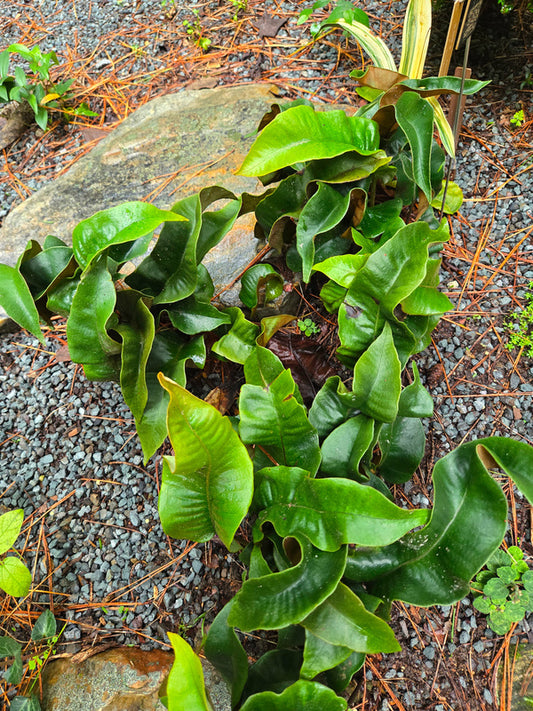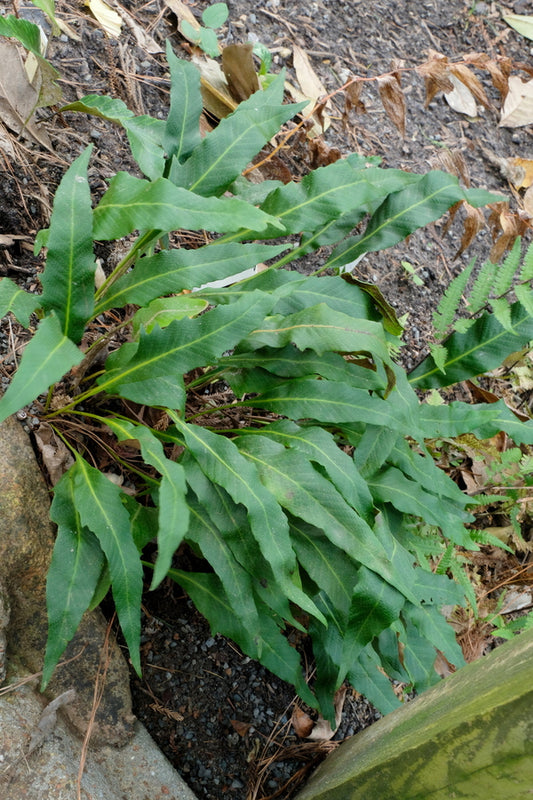Pyrrosia ferns are stellar performers in warm temperate climates, especially if planted on a slope. Like most garden ferns, Pyrrosias prefer partial sun, a rich, well-amended soil, and average moisture.
-
Pyrrosia 'Eboshi'
Item #: 10020
Zones: 7b to 10b
Dormancy: Evergreen
Height: 5" tall
Culture: Light Shade
Origin: China, Japan, Taiwan
Pot Size: 3.5" pot (24 fl. oz/0.7 L)
Regular price $30.00Regular priceUnit price per -
Pyrrosia subfurfuracea 'Red China'
Item #: 14901
Zones: 7b to 10b
Dormancy: Evergreen
Height: 15" tall
Culture: Part Sun to Shade
Origin: China
Pot Size: 3.5" pot (24 fl. oz/0.7 L)
Regular price $30.00Regular priceUnit price per
More Information About Pyrrosia
Pyrrosia is a genus of mostly evergreen, slowly rhizomatous Asian epiphytic ferns that adapt quite well to container culture. Pyrrosia is a very un-fern-like fern due to its strap-shaped leaves. The many foliage variations of Pyrrosia lingua are highly prized as collector's plants in Japan. Some of these unusual pyrrosia have lobed fronds while others have ruffled or variegated fronds.
Pyrrosia (Tongue Fern) Growing Conditions
Pyrrosia ferns are stellar performers in warm temperate climates, especially if planted on a slope. Like most garden ferns, tongue ferns prefer partial sun, a rich, well-amended soil, and average moisture. Some species will spread on short, stiff rhizomes, while other species form a small tight clump. The tongue-shaped fronds of pyrrosia ferns are deer-resistant and are great accents in the garden. They pair well with acorus, ophiopogon, carex, corydalis, and Solomon's seal to name a few.



